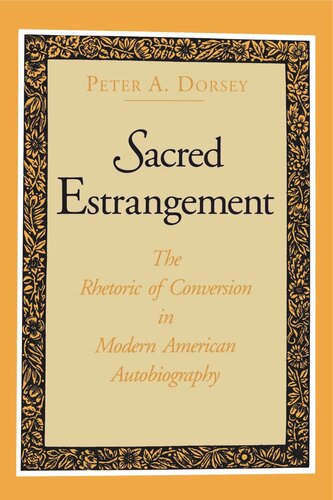

Most ebook files are in PDF format, so you can easily read them using various software such as Foxit Reader or directly on the Google Chrome browser.
Some ebook files are released by publishers in other formats such as .awz, .mobi, .epub, .fb2, etc. You may need to install specific software to read these formats on mobile/PC, such as Calibre.
Please read the tutorial at this link: https://ebookbell.com/faq
We offer FREE conversion to the popular formats you request; however, this may take some time. Therefore, right after payment, please email us, and we will try to provide the service as quickly as possible.
For some exceptional file formats or broken links (if any), please refrain from opening any disputes. Instead, email us first, and we will try to assist within a maximum of 6 hours.
EbookBell Team

4.3
88 reviewsSacred Estrangement analyzes certain works by important American writers and thinkers in the context of the "rhetoric of conversion." Such analysis is especially valuable because it provides a reliable index of the relationship between the self and larger communities. Traditionally, "conversion" has served a socializing function, signifying that one has come into alignment with certain linguistic, behavioral, and cultural expectations. The socialization process is particularly apparent in the Christian conversion narratives of the seventeenth through nineteenth centuries: by publicly testifying to a conversion experience, believers became empowered members, not only of God's elect community but also of a local population.
As modern autobiography developed in the eighteenth and nineteenth centuries, the Christian pattern was secularized and individualized. Conversion became a model for many kinds of psychological change. With the coming of the twentieth century, however, the authors upon whom Peter Dorsey focuses, including William and Henry James, Henry Adams, Edith Wharton, Ellen Glasgow, Zora Neale Hurston, and Richard Wright, radically revised conversion rhetoric. If conversion had traditionally linked the search for illumination with the search for a defined social role, these writers increasingly used conversion as an index of estrangement from mainstream America.
Dorsey documents this profound change in the way American intellectuals defined the "self," not in terms of personal orientation toward or away from a given community, but as a resistance to such an orientation altogether, as if social forces by their "nature" were a threat to personal identity.